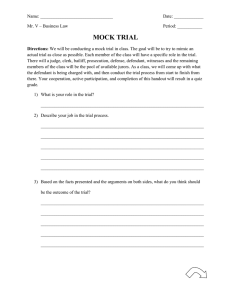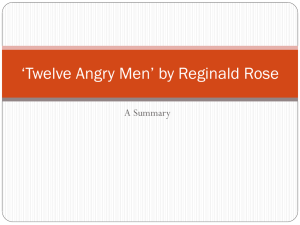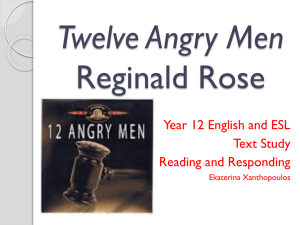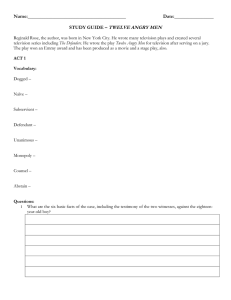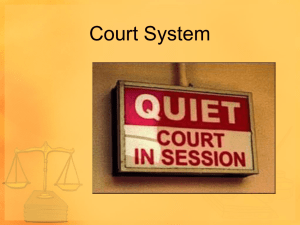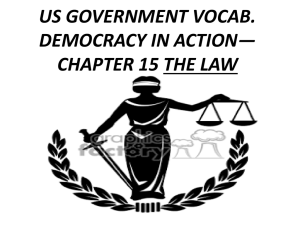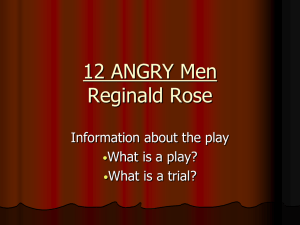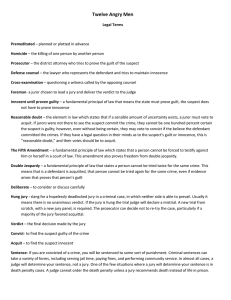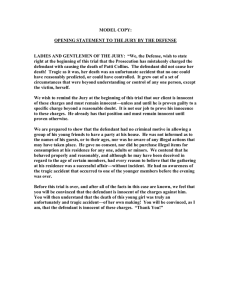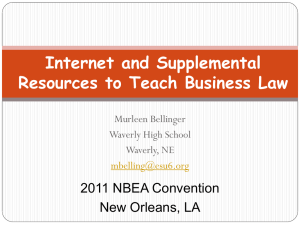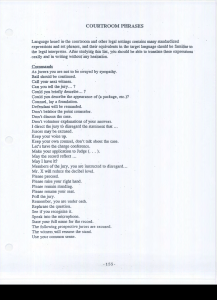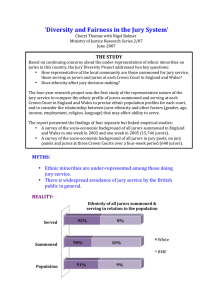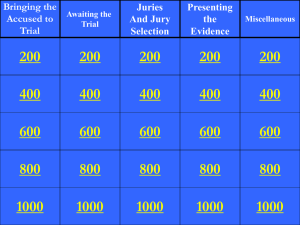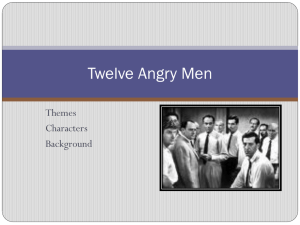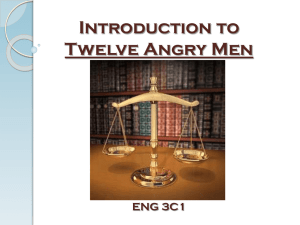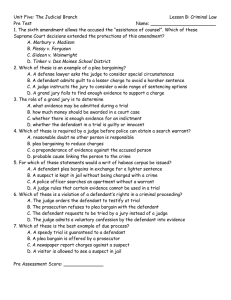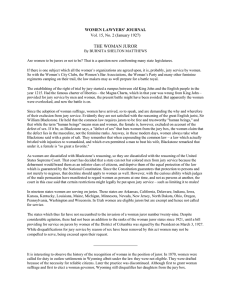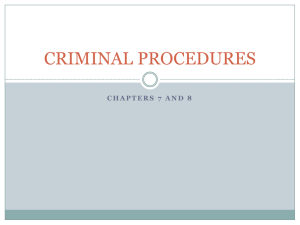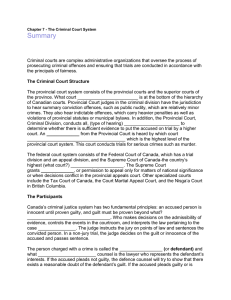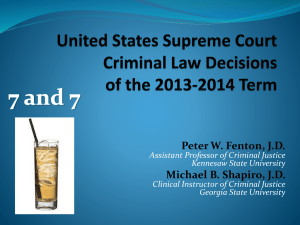Twelve Angry Men
advertisement
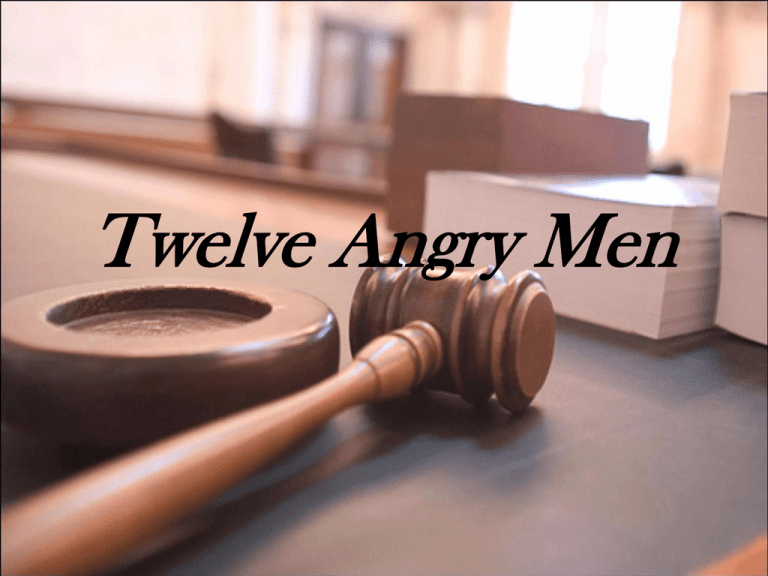
Twelve Angry Men Introduction Twelve Angry Men is a play written by Reginald Rose, who actually wrote the drama based on his real-life experience in a New York courtroom. In the story, 12 jurors are debating the fate of a juvenile boy, who is being charged with the murder of his father. The entire play is set in the jury room where the jurors debate and try to get to a unanimous vote of guilty or not-guilty. Questions to consider… •What is justice? •Does prejudice exist in our legal system? •What crimes should be punishable by death? •Is our legal system fair? Connections • How would the jury in Twelve Angry Men voted in a case against George in Of Mice and Men? • Are the prejudices illustrated in the play similar to the ones illustrated in Of Mice and Men? • Was justice served in both stories? Vocabulary • Burden of proof: – required evidence to establish a basis for filing legal action with a court. • Due process of law: – the constitutional guarantee that an accused person receives a fair and impartial trial. • Presumption of innocence: – a principle that requires the government to prove the guilt of a criminal defendant and relieves the defendant of any burden to prove his or her innocence. Vocabulary • Circumstantial evidence: – indirect evidence that allows a conclusion to be made. • Beyond a reasonable doubt: – standard of proof that must be agreed upon to convict an accused person. • Acquit: – To set free, release or discharge Vocabulary • Defendant: – the person charged with committing a crime. • Prosecutor: – trial lawyer representing the government in a criminal case. • Premeditated: – planned ahead. • Hung jury: – a jury that cannot agree on a verdict.

